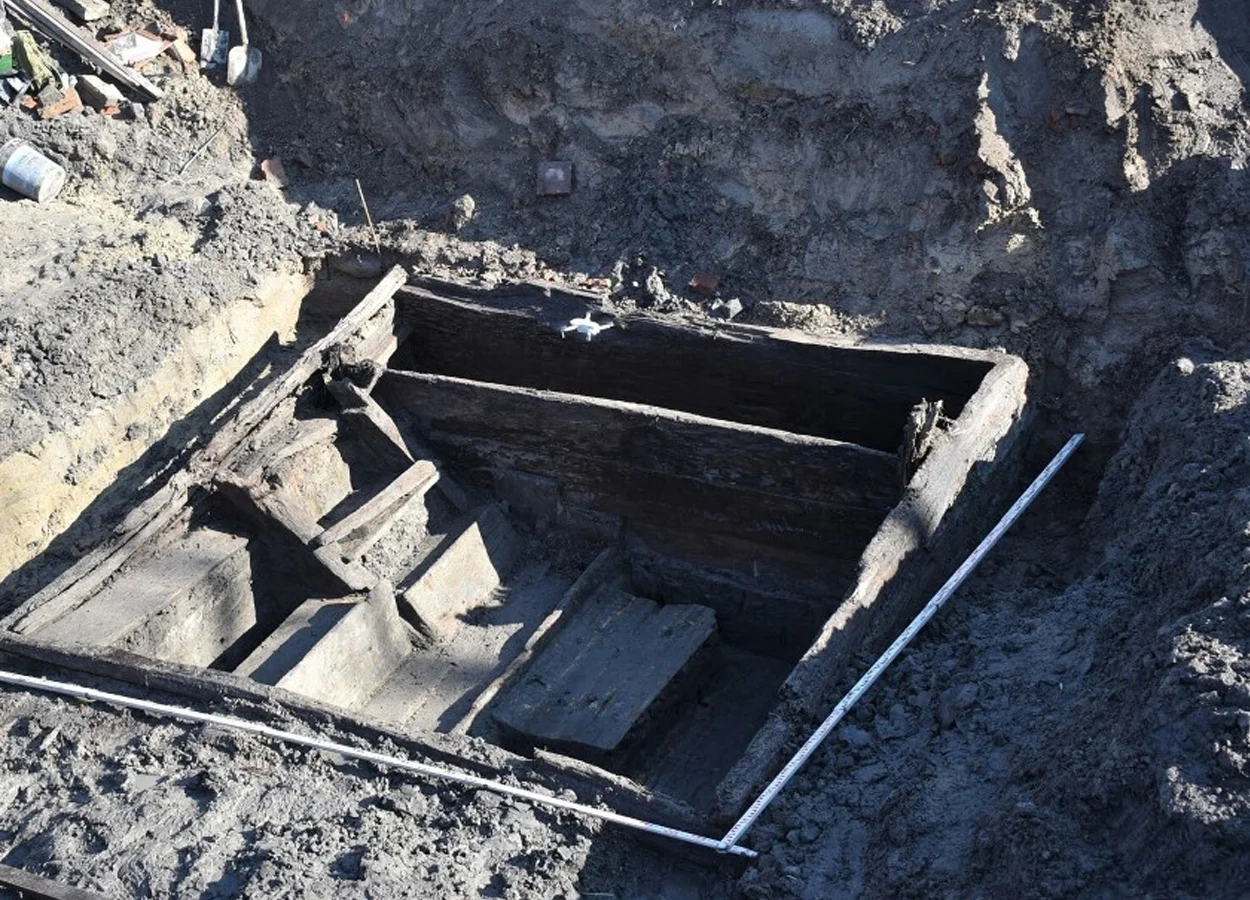Excavations in the city of Oświęcim, in the region of Małopolska, Poland, have uncovered a wooden mikveh that dates from 300-years-ago.
A mikveh is a bath used for the purpose of ritual immersion to achieve ritual purity in Judaism. The traditional rules regarding the construction of a mikveh are based on those specified in regulations laid down in the Torah and in classical rabbinical literature.
The text describes how a mikveh must be connected to a natural spring or well of naturally occurring water, and thus can be supplied by rivers and lakes which have natural springs as their source. A cistern filled by rainwater is also permitted to act as a mikveh’s water supply, so long as the water is never collected in a vessel.
Archaeological works in Oświęcim were in preparation for the construction of an underground carpark, where the researchers found a series of artefacts from the Middle Ages, in addition to the wood-built mikveh that dates from 300-years-ago.
Speaking to Oswiecim Naszemiasto, archaeologist Grzegorz Mądrzycki, said: “We dug up a few stairs leading down to a wooden floor, which first appeared to be a fragment of a wooden hut. However, after removing successive layers of earth, it turned out to be a wooden mikvah.”
The mikveh is in a high state of preservation, which is uncommon as wood normally decomposes and is broken down by fungi and micro-organisms such as bacteria. The waterlogged conditions have meant that oxygen is unable to penetrate the wood, preventing bacteria from being able to thrive.
Jewish people first settled in Oświęcim in the second half of the 16th century, when most buildings in the city were constructed using wood. The wooden mikveh found by the researchers dates from the 17th or 18th century, which provides historical and architectural value in understanding the basic elements of Jewish life in Oświęcim.
Header Image Credit : Boguslaw Kwiecien








